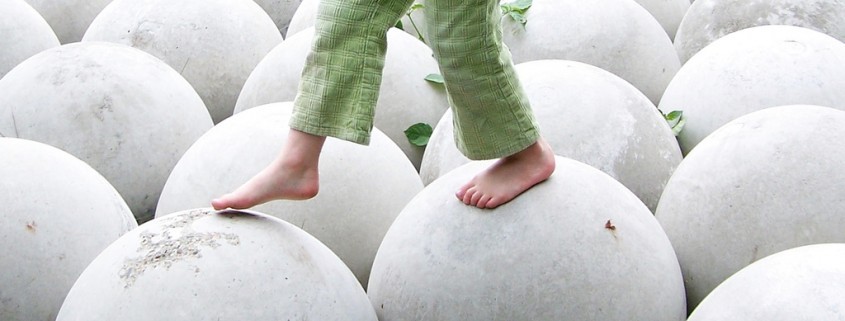Encouraging Resilience in Children
There are many definitions of the word resilience. They revolve around the ability of a person to ‘bounce back’ after difficulties, to overcome challenges and to reframe challenges as problems with a solution.
Clearly this is an important skill for us to have as adults, as we know life can be full of the unexpected! The experiences we have and we observe during our childhood lead to intrepretations about coping, which we carry forward into our adult years. They can be messages equating to: ‘It’s too hard’, ‘I can do this’, ‘I can’t do this’, ‘It will be okay’ or ‘I’ll get it right this time.’ We all have some of these messages in our heads, and when adversity or a challenge strikes, we act according to the belief systems we have developed about ourselves and life.
A child who frequently hears: ‘be careful’ or ‘let Mummy do that’ will learn that life is risky or unsafe, and that they shouldn’t try. These aren’t messages which will be very helpful as an adult.
We want children to develop a spirit or willingness to give things a go, and to know that even if something doesn’t work the first or the second time, that there will be some solution to a problem, with a attitude of determination.
Resilient people are:
- Optimistic
- Problem solvers
- Independent and
- People Smart
How do we build these skills in children?
Optimism – we model this to our children in our attitude and response to situations and people. Optimistic people won’t whine about the rain, they will say how good it is for the garden. Rather than complain about the traffic, they will enjoy the music on the car radio. When your child picks you some flowers from the garden (with heads only and no stem!) you delight in their gift to you. Optimistic people work to reframe ‘negative’ experiences by focussing on what’s good or what’s going well. What a great skill to teach your child.
Problem Solving is developed when you praise children for ‘having a go’. When something they are doing doesn’t work or fails – encourage them to give it another go, and ask them why they think their tower fell down, or why they keep having knots in their hair. Many parents step in early and take over, thereby robbing their children of the chance to work it out themselves. Remember that Edison made about 3,000 light bulbs which didn’t work before he did get it right – persistence pays!
Independence is developed when parents teach children skills, let the child practise, encourage them, and then let the child do it on their own. Eg riding a bike – we need to teach them how to mount a bike, to pedal, to steer and to let them practice. We know any ‘learner’ is exactly that – a learner, not an expert. They will make mistakes or forget, or ‘fail’ – this is when we must encourage them with our words, giving them the message: ‘I believe in you, I know you can do this!’ This is true regardless of whether they are learning to feed themselves, to read, to brush their teeth, or kick a ball.
People Smart. Until around 7 years of age, children are very ego-centric. This means they are very focussed on themselves and their wants first, with less care for others until their needs are met – generally speaking. Gradually they become more aware and concerned about others and their feelings. They also start to become aware of ‘fairness’ in life, in rules and decisions. When parents model care and concern for others, and they teach (through modelling) gratitude for others and they help them, they pass these skills onto their children. Emotional Intelligence refers to the ability to be aware of others and to respond accordingly. Resilient children and adults are those who notice how others around them are behaving – whether they are happy, sad or upset. Knowing this is gold – you know who to help or not, you know who can support you or not. Resilient people also often have a team supporting them, and so Emotional Intelligence is very important – and beneficial to others also!
The more resilience we have as adults, they more we grow it in our children.
Happy and resilient parenting this week!
— Image by pinksherbet via Flickr









